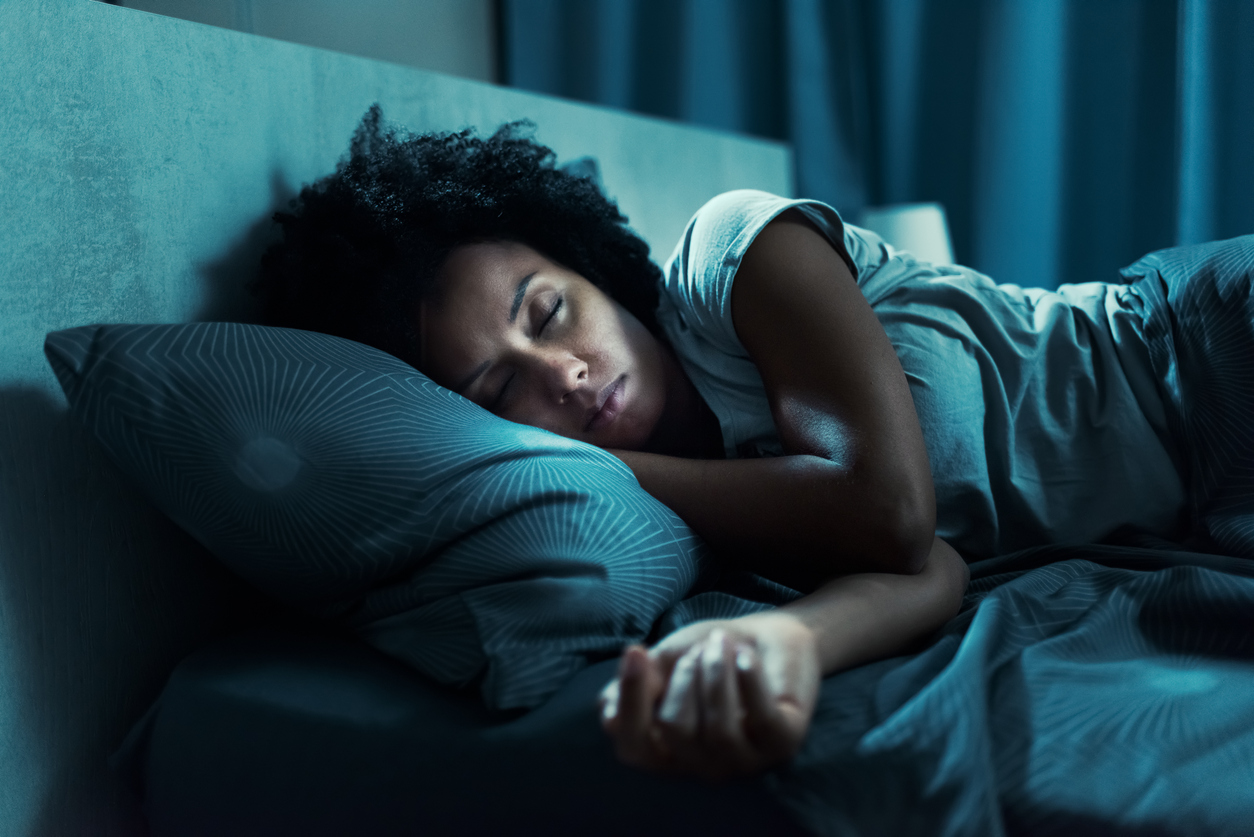Dr Linia Patel explores sleep supplements and asks, do they really work?
Sleep. We spend a third of our lives doing it. It is as important as eating a balanced and nutritious diet and moving enough. But sometimes, no matter what sleep hack you try, you can’t seem to get the good night’s sleep you need. With a wealth of products on offer claiming to have slumber-inducing potential, let’s explore if they really work and how to get the most from your sleep supplement choice.
Common sleep supplements
Magnesium1,2.
Magnesium is a mineral involved in hundreds of processes in the human body. Adults are recommended to have 300-420mg of magnesium daily. Current evidence shows that additional magnesium can help the body relax and improve both the quality and quantity of sleep. It’s thought that magnesium’s relaxing effects may be due to its ability to regulate the production of melatonin, the hormone that regulates sleep. It also known to relax muscles and help relax the mind too. This may be linked to the increase in levels of gamma aminobutyric acid (GABA), a brain messenger with calming effects. Magnesium supplements, when taken appropriately and in the short term, pose little risk. Excessive intakes, however, may lead to diarrhoea, cramping and nausea. Magnesium can also interact with certain medications. Before starting magnesium supplements, focus on getting the proper amount of nutrients in your diet. You can find magnesium naturally in many foods like dark green leafy vegetables, nuts, legumes, dairy products, soy foods and wholegrains.
Zinc3.
Probably not the first ingredient you think of when it comes to sleep supplements, but zinc can be a useful addition to your nightly regime. People with low zinc concentrations appear to sleep less than those with adequate supplies. Zinc has a direct impact on the nervous system and may also improve circadian clock functioning – both of which can help to regulate sleep patterns. Zinc is thought to work best for sleep support when it teams up with magnesium.
Melatonin4.
Melatonin is a hormone that your body produces naturally that signals to your brain when it’s time to sleep. For this reason, melatonin supplements have become a popular sleeping aid. Studies show that melatonin supplements may improve sleep quality. They seem to be especially helpful if you have jetlag or are doing shift work. Melatonin supplements are not available over the counter in the UK, however.
5-HTP5.
5-hydroxytryptophan (5-HTP) is an amino acid that your body naturally produces. Your body uses it to produce serotonin, a chemical messenger that sends signals between your nerve cells. Serotonin then makes melatonin – the essential sleep hormone. When we have insufficient serotonin production, we can struggle to make sufficient melatonin required for sleep. Taking 5-HTP is a natural and gentle way to upregulate your supplies. The recommended dose is 150-400mg per day. It is recommended that you don’t take 5-HTP for more than six weeks.
L-theanine6.
This is the ultimate stress soother. Japanese monks consume this amino acid in abundance to aid their meditation practices. Found in green and black tea as well as mushrooms, L-theanine enhances mental focus while easing anxiety. As you would have to drink an awful lot of green tea to get the benefits, taking a concentrated form via supplementation can be a good way to go. Research shows that consuming a daily supplement containing up to 400mg of this amino acid may help improve sleep and relaxation. As there is no conclusive research, a safe L-theanine dosage recommendation isn’t known, but it’s safe to drink teas and take supplements that contain L-theanine.
Lavender7.
This purple flower produces a soothing fragrance that is believed to enhance sleep. Several studies show that simply smelling lavender oil shortly before sleep may be enough to improve sleep quality. This effect appears particularly strong in those with mild insomnia and especially in females. Though lavender aromatherapy is considered safe, the oral intake of lavender has been linked to nausea and stomach pain in some cases. More studies on lavender supplements are needed to evaluate their efficacy and safety.
Valerian8.
Valerian is a root that is commonly used as a natural treatment for symptoms of anxiety, depression and also to help promote sleep. Valerian root has been found to help people fall asleep faster, improve their sleep quality and spend more time in deep sleep. However, many other studies also show that it has no effect or a statistically insignificant effect. To see an improvement, people may need to take valerian root regularly, rather than once in a while or as needed. There is no official dosage recommended for people wanting to take the root. Many research studies of valerian root’s effect on sleep have people taking 300-600mg once per day on a regular basis. When taking a supplement, it’s best to start with a low dose and then gradually increase it over time if needed. Talk to your doctor before starting valerian root to discuss dosage and whether it’s the best sleep aid for you, as it can interact with certain medications.
Take-home message
Natural sleep aids are generally considered to have fewer side effects than prescription medications. However, you should still talk to your doctor before using any herbs or medications for sleep. Keep in mind too that the supplements above are most effective when used in combination with good sleep practices and habits. They should only be taken for the short term. If you require a little extra help to get a good night’s sleep and you just want to take one supplement, then make it magnesium. Especially if you, like most of us, suffer from a degree of daily stress. However, as with anything, remember that more is not necessarily better.
You should now go check out Linia’s best-selling online educations ‘Nutrition for Menopause’, ‘Gut Health – the power of the microbiome’ and ‘Low Carb: the evidence & the application’.
Author Bio:

Dr Linia Patel has a BSc degree in biochemistry and physiology and has recently achieved a PhD in public health. Linia is a leading dietitian and sports nutritionist. Her passion is translating nutritional science into easy-to-digest and practical advice.
References
- Abbasi et al (2012), The effect of magnesium supplementation on primary insomnia in elderly: A double-blind placebo controlled clinical trial, J Res Med Sci., 17(12): 1,161-69.
- Abbasi et al (2012), The effect of magnesium supplementation on primary insomnia in elderly: A double blind placebo-controlled clinical trial, J Res Med Sci., 17: 1,161.
- Iknonte et al (2019), Micronutrient inadequacy in short sleep: Analysis of the NHANES 2005 – 2016, Nutrients, 11(10): 2,335.
- Noyak et al (2016), Does melatonin have a meaningful role as a sleep aid does jet lag recovery?, The Laryngoscope, 36(3): 169-75.
- Birdall T et al (1998), 5-HTTP: A clinically effective serotonin precursor, Altern Med Rev., 3(4): 271-80.
- Kim et al (2019), ABA and L-theanine mixture decreases sleep latency and improved NREM sleep, Pharm Biol., 57(1): 65-73.
- Lillehei et al (2006), The effect of inhaled lavender and sleep hygiene on self-reported sleep issues: A randomised controlled trial, J Altern Complement Med., 21(7): 430-438.
- Bent et al (2015), Valerian for sleep: A systematic review and meta-analysis, Am J Med., 119(12): 1,005-12.







